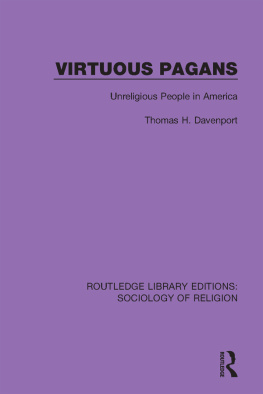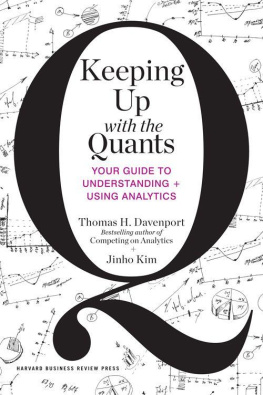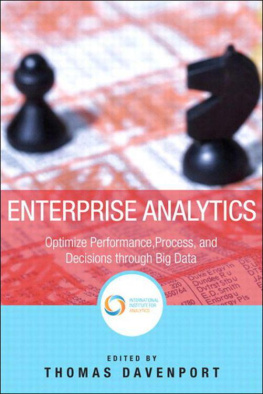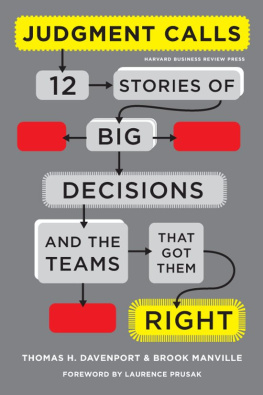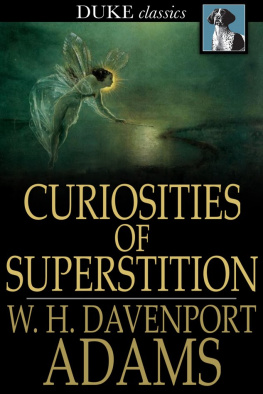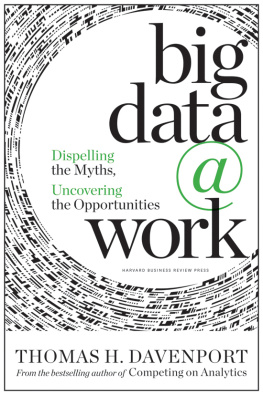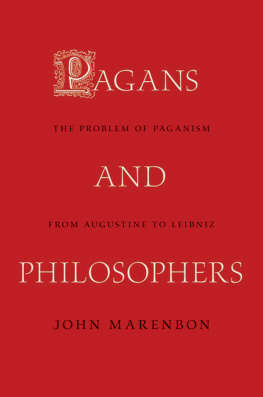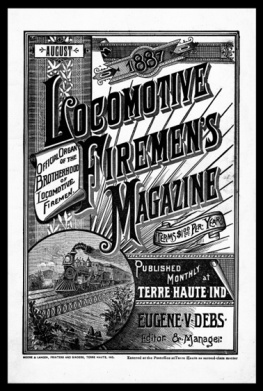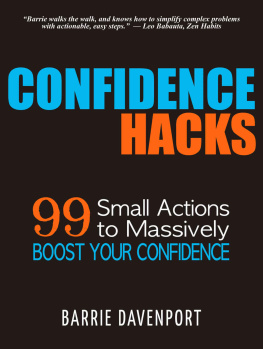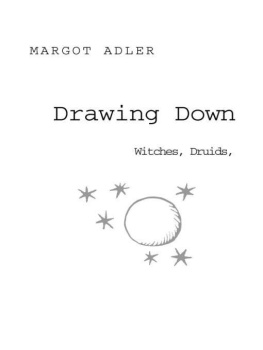ROUTLEDGE LIBRARY EDITIONS: VIRTUOUS PAGANS
Volume 18
VIRTUOUS PAGANS
VIRTUOUS PAGANS
Unreligious People in America
THOMAS H. DAVENPORT
First published in 1991 by Garland Publishing
This edition first published in 2019
by Routledge
2 Park Square, Milton Park, Abingdon, Oxon OX14 4RN
and by Routledge
52 Vanderbilt Avenue, New York, NY 10017
Routledge is an imprint of the Taylor & Francis Group, an informa business
1991 Thomas H. Davenport
All rights reserved. No part of this book may be reprinted or reproduced or utilised in any form or by any electronic, mechanical, or other means, now known or hereafter invented, including photocopying and recording, or in any information storage or retrieval system, without permission in writing from the publishers.
Trademark notice: Product or corporate names may be trademarks or registered trademarks, and are used only for identification and explanation without intent to infringe.
British Library Cataloguing in Publication Data
A catalogue record for this book is available from the British Library
ISBN: 978-0-367-02386-7 (Set)
ISBN: 978-0-429-02545-7 (Set) (ebk)
ISBN: 978-0-367-02474-1 (Volume 18) (hbk)
ISBN: 978-0-367-02479-6 (Volume 18) (pbk)
ISBN: 978-0-429-39938-1 (Volume 18) (ebk)
Publishers Note
The publisher has gone to great lengths to ensure the quality of this reprint but points out that some imperfections in the original copies may be apparent.
Disclaimer
The publisher has made every effort to trace copyright holders and would welcome correspondence from those they have been unable to trace.
Virtuous Pagans
Unreligious People in America
Thomas H. Davenport
A list of the titles In this series appears at the end of this book.
Copyright 1991 by Thomas H. Davenport.
All lights reserved.
Library of Congress Cataloging-in-Publication Data
Davenport, Thomas H.
Virtuous pagans : unreligious people in America/Thomas H. Davenport.
p. cm. (Harvard studies in sociology)
Derived from the authors thesis (Ph. D.)Harvard University, 1980.
Includes bibliographical references.
ISBN 0-8240-9251-1 (alk. paper)
1. IrreligionUnited States. 2. United StatesReligion1960-. I. Title. II. Series.
BL2525.D39 1991
306.6dc20 91-9274
Printed on acid-free, 250-year-life paper
Manufactured in the United States of America
Design by Julie Threlkeld
Preface
T his book, as the title of the series implies, is derived from my dissertation in Sociology at Harvard University. The dissertation was completed in 1980, at which time I received the Ph.D. degree. I began revising the dissertation shortly thereafter for the purpose of publishing it as a book, but because I changed careers (from academic sociology to consulting and academic work on information systems management) I never published any aspect of the dissertation until now. In this preface I discuss the purpose behind the work, my reflection on its strengths and weaknesses, and changes in the topic since 1980.
I chose the topic of a broad survey of unreligious people in America because of a contradiction I noticed between theories of the sociology of religion, and my own casual observations. Most sociologists of religion (from Durkheim and Weber through Robert Bellah and Andrew Greeley) viewed religious belief and behavior as having strong positive function for individual wellbeing. The explicit assumption was that the meaning religion gave to lifethe idea that each person was on earth for a good reasonprovided psychological security and comfort. The implicit assumption was that individuals without religion would lack meaning in life and would therefore be maladjusted, unsuccessful, etc.
On the other hand, I knew of numerous individuals in history and among my personal acquaintances who were not religious and who were quite content and successful. Like Jean-Paul Sartre, their certainty that there was no ultimate rationale for life (or their certainty of the inaccessibility of the rationale) was not depressing, but almost invigorating.
I counted myself among this latter group, of course. Like the psychologists who enter their field to understand how they acquired their own psychological problems, I felt I was both unreligious and reasonably well adapted to life, and I wanted to learn whether I was a walking contradiction.
I also wanted to apply some statistical approaches to modeling causality that had been invented by my primary mentor, James Davis. They combined statistical rigor with reasonably understandable variable structures and causal explanationsa rare combination in sociology. Because these approaches worked well with a dichotomous dependent variable, religious/unreligious seemed a good variable to try to predict.
By the time the thesis was completed, I was still remarkably interested in the topic, and the analysis had more or less gone as I had hoped. I refer the reader to the text for the conclusions, but if one generalized from my sample of unreligious to the entire population, the world could probably exist without religion.
Perhaps the most controversial aspect of the dissertation was dividing up the world into two partsreligious and unreligious. I knew (and know) that religiosity is more a continuum than a dichotomy. However, I believed that choosing a group of people who were clearly at one extreme of the continuum, and comparing them to everyone else, would yield some interesting comparisons. Even though there are undoubtedly a few religious characteristics in the unreligious sample, and vice-versa, the two groups were certainly quite different in terms of religiosity, and there was substantial variance on other attitudinal and behavioral variables that might plausibly be linked with religion. Any methodological impurities are, I still feel, outweighed by the ability to talk about a group of people rather than a variable.
I went to great pains in the book to define a group of truly unreligious individuals, using a combination of measures of belief (in life after death), practice (church attendance), and self-perception (Identification with a particular religion). No study I have seen before or since this work has questioned that individual religiosity is multi-dimensional, and I do not question the need for the three-variable model, however complex it made the concepts and the analysis.
The most valuable section of the book is , on the other hand, which addresses the causal relationships behind becoming unreligious, strikes me ten years later as rather common-sensical.
If I were to do the thesis again I would definitely make one major change, which would be actually to interview some unreligious people, rather than to rely on survey data and secondary research alone. This would have made the book more human and accessible. Perhaps I did not do so because I was living and working in Cambridge, Massachusettsreportedly a hotbed of unreligiousnessand I did not want to be overly influenced by my immediate surroundings. The best sociology has a human face, and in this work it can be seen only dimly (still, it may be a more human work than most recent dissertations in the field!).



